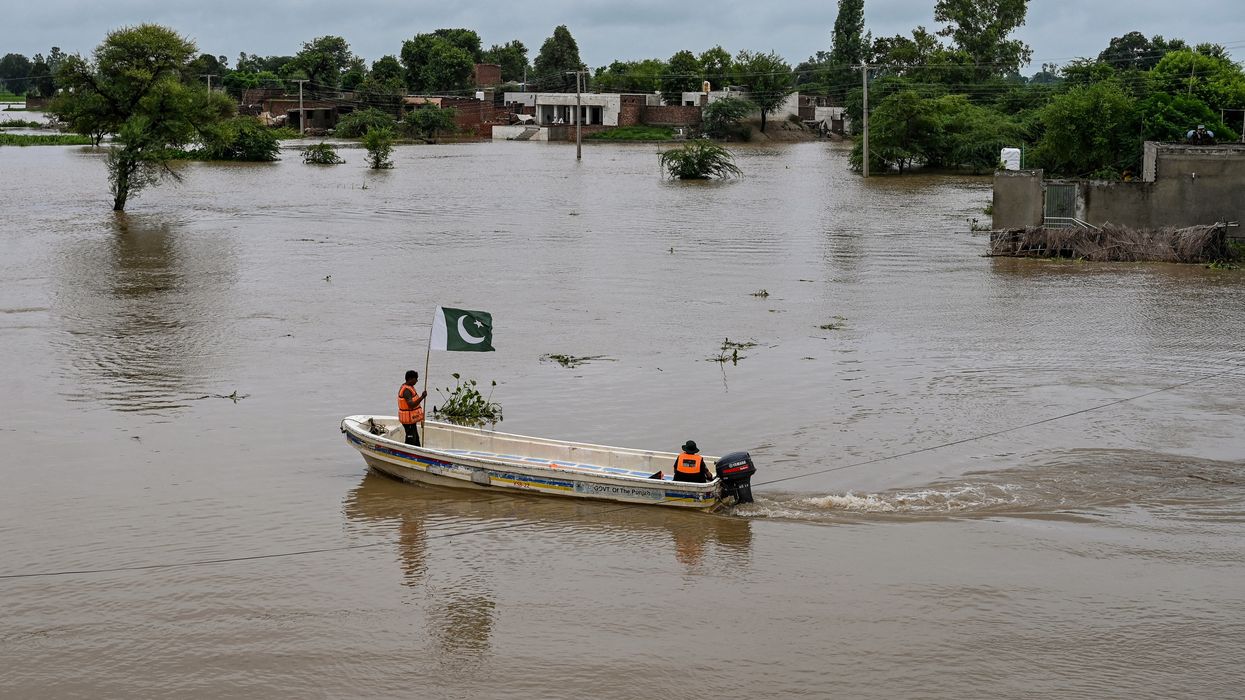INDIA has alerted Pakistan about a possible flood in the Tawi River, according to a media report on Monday, while heavy rains and rising river levels have forced evacuations in Pakistan’s Punjab province.
Citing official sources, The News reported that India contacted Pakistan to share information about potential flooding in Jammu’s Tawi River. The Indian High Commission in Islamabad conveyed the alert on Sunday, the paper said. There has been no official confirmation from either India or Pakistan.
The report added that Pakistani authorities have issued warnings based on the information. It is the first such contact since the India-Pakistan conflict in May, according to the paper. Normally, such alerts are shared through the Indus Water Commissioner.
A day after the Pahalgam terror attack on April 22, India suspended the Indus Waters Treaty of 1960, which had governed the distribution and use of the Indus River and its tributaries between the two countries since it was brokered by the World Bank.
Meanwhile, Pakistan’s National Disaster Management Authority (NDMA) has warned of heavy rainfall across most parts of the country until August 30. The country has already been hit by earlier monsoon spells from June 26 to August 20, which left 788 people dead and 1,018 injured as of Saturday.
Flooding has worsened in Punjab, where around 20,000 people have been evacuated over the past 24 hours, officials said on Sunday.
“People from Kasur, Okara, Pakpattan, Bahawalnagar and Vehari have been moved to safety after several villages submerged under floodwater,” Farooq Ahmad, spokesperson for Punjab Emergency Services Rescue 1122, said.
The affected areas are located near the Indus, Chenab, Ravi, Sutlej and Jhelum rivers. Ahmad said evacuations of populations in the Sutlej and Ravi riverbeds have been completed.
The Provincial Disaster Management Authority (PDMA) said emergency operations were continuing across multiple districts, with a fresh monsoon spell forecast until August 27.
The Sutlej River has reached a high flood level at Ganda Singh Wala. “The situation at Ganda Singh Wala is critical and expected to persist for the next 48 hours,” the PDMA warned, adding that water levels in the Indus at Tarbela and Kalabagh are also rising.
“The epicentre of the crisis remains Sutlej, where authorities are focusing evacuation efforts in areas like Jalalpur Pirwala. We have begun relocating residents to prevent any potential damage. Their lives and property are our primary concern,” the authority said.
The government has urged citizens to cooperate with rescue agencies and avoid recreational activities near rivers and canals.
(With inputs from agencies)





